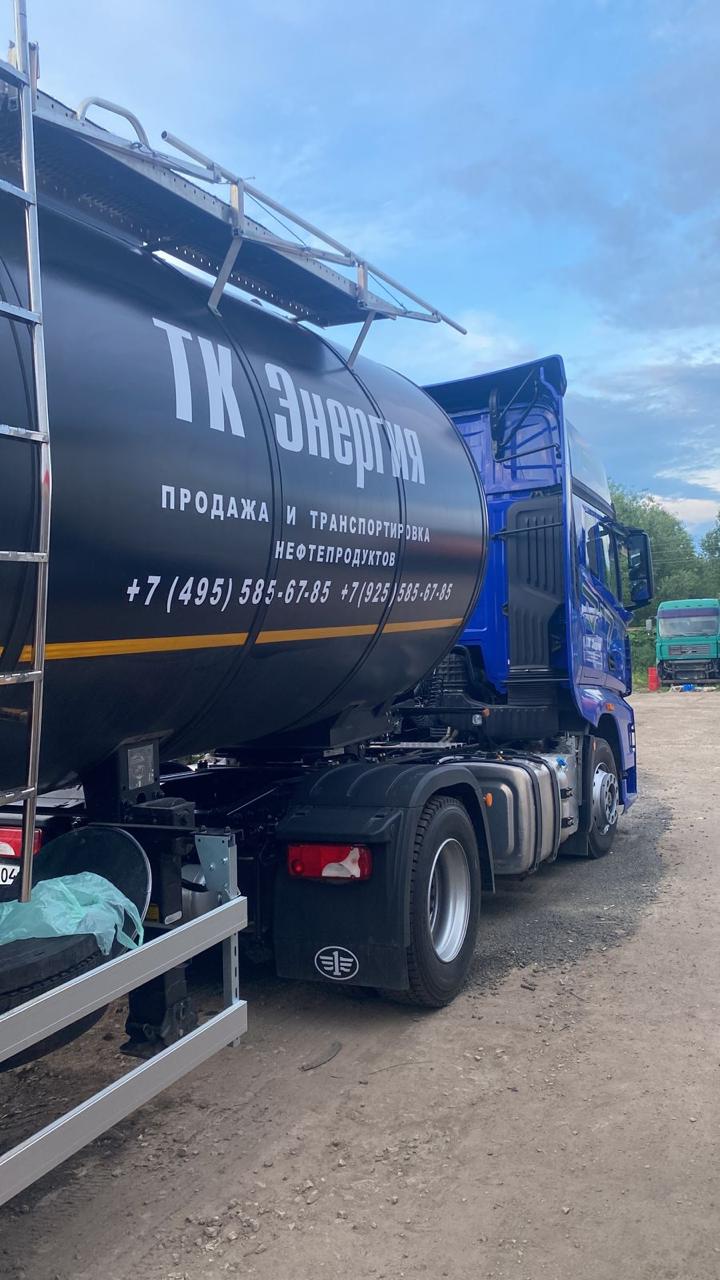THE COMPANY'S PRODUCTS
HEATING OIL M-100

Heating oil M 100 is used as fuel for boiler houses and thermal power plants (TPP), as industrial fuel for furnaces and drying chambers. Heating oil is used as a raw material for the production of bitumen, vacuum gas oil, furnace fuel components, diesel fuel, various oils and other petrochemical substances.
Heating oil fuel for ships (bunkering fuel) and is used in steam locomotives of the old type.
It is used for heating greenhouses and warehouses in the cold season.
MORE DETAILED:
Technical characteristics and GOST heating oil M-100
The normative technical characteristics of M-100 fuel oil are given in GOST 10585-2013, in table 1, paragraph 4.3. The main physico-chemical parameters of petroleum products are as follows:
- Viscosity at 100 °C – 50 mm2/с, conditional viscosity at 100 °C – 6,80 °E.
- Flash point – not lower 110 °C.
- Ash content – no more than 0,05% for low-alcohol and no more 0,14 ash heating oil.
- The mass fraction of water and mechanical impurities is not more than 1%.
- Mass fraction of sulfur – 0,5-3,5%.
- Hydrogen sulfide content – no more than10 mg/kg.
- The solidification temperature is not higher 25 °C, in the production of high–paraffin oil - no higher 42 °C.
Advantages of using m-100 heating oil
The advantages of using M-100 grade fuel oil include:
-
High calorie content: Fuel oil M-100 has a high calorie content, which makes it an efficient and economical source of heat and energy.
-
Wide range of applications: This type of fuel oil is widely used in various industries, including energy, metallurgy, transport, etc., which makes it a universal fuel for various production processes.
-
Availability and stability of supplies: Fuel oil of the M-100 brand is one of the most common types of fuel oil, which ensures its availability and stability of supplies on the market.
-
Low cost: Compared to other fuels, M-100 fuel oil usually has a relatively low cost, which makes it an attractive option for enterprises and organizations seeking to reduce energy costs.
-
Possibility of use in various heating systems: Fuel oil M-100 can be used in various heating systems, including steam boilers, thermal plants, heating systems of large buildings, etc.
-
Combustion stability: With proper operation and provision of the necessary combustion conditions, M-100 fuel oil provides stable and efficient combustion without the formation of carbon monoxide and other harmful emissions. Gorenje
HEATING OIL M-40

Heating oil M-40 - it is a heavy petroleum fuel, has a medium viscosity and is used in industry and for heating. It is one of the types of fuel oil and has a lower caloric content. Heating oil M-40 usually has a lower flash point and solidification. It can also be used in various industries, as well as in heating systems where inexpensive and affordable fuel is required.
MORE DETAILED:
Technical characteristics and GOST of heating oil M-40
The required characteristics of fuel oil M-40 are given in the same regulatory document – GOST 10585-2013. Basic properties:
- Viscosity at 80 °C – 59 mm2/s.
- Ash content – no more than 0,04% for low-alcohol and no more 0,12 ash heating oil.
- The mass fraction of mechanical impurities is not more than 0,5%.
- Flash point – not lower 90 °C.
- Water concentration – no more than 1%.
- Mass fraction of sulfur – 0,5-3,5%.
- Hydrogen sulfide content – no more than 10 mg/kg.
- The solidification temperature is not higher 10 °C, in the production of high–paraffin oil - no higher 25 °C.
Advantages of using M-40 fuel oil
-
Accessibility and low cost: M-40 fuel oil is usually a more affordable and cheaper fuel option compared to heavier fuel oils, which makes it attractive for businesses and organizations with a limited budget.
-
Versatility of application: M-40 fuel oil can be used in various industries, including energy, metallurgy, transport, etc. This makes it a versatile and efficient fuel for various production processes.
-
Relatively high caloric content: Although the caloric content of M-40 fuel oil is lower than that of heavier fuel oils, it is still high enough to provide the necessary thermal energy in production processes and heating systems.
-
Low sulfur content: In some cases, M-40 fuel oil may have a lower sulfur content compared to other fuel oils, which may be an important factor for compliance with environmental standards and emission control requirements.
-
Relative ease of use: M-40 fuel oil is usually easily transported and stored, which makes it convenient to use for enterprises and organizations.
BITUMEN

Bitumen — it is a heavy, viscous and dense petroleum liquid with high viscosity and adhesion. It is obtained as a result of oil refining and is used in construction, road construction and the production of asphalt concrete, waterproofing materials, mastics, adhesives and other building components. Its use makes it possible to improve the quality and durability of building materials, providing reliable protection from moisture, wear and other external influences.
MORE DETAILED:
| Characteristic | The average value |
| Density | 1,0-1,2 g/sm³ |
| Melting point | 50-150°C |
| Viscosity (при 60°C) | 150-400 dm³/sec |
| Tensile strength | 1-5 MPa |
| UV resistance | good |
| Service life | up to 20 years |
Advantages of using bitumen
Bitumen has several advantages, including:
- Waterproof: Bitumen has a high degree of waterproofing, which makes it an excellent choice for road construction, roofing and waterproofing materials.
- Durability: Due to its viscosity and resistance to various weather conditions, bitumen materials usually have a long service life.
- Flexibility: Bitumen materials are flexible and can adapt to temperature changes and ground movement, making them an ideal choice for areas with seasonal temperature changes and vibration.
- UV resistance: Bitumen is not exposed to ultraviolet rays, which helps to preserve its quality and color for a long time.
- Cost-effectiveness: Bitumen materials are often more affordable in terms of price compared to alternative building materials, which makes them an attractive choice for various construction projects.
PETROL

Petrol — it is a flammable mixture of hydrocarbons obtained in the process of refining oil, gas condensates or synthesized chemically. It is the main type of fuel for internal combustion engines (especially automotive ones)
DIESEL FUEL

Diesel fuel - it is a type of fuel obtained as a result of refining oil or gas condensates, intended for operation of diesel internal combustion engines, as well as widely used in thermal energy and industry.
PACKING OF BITUMEN IN CLOVERTEINERS

We will select the optimal packaging parameters based on the specific tasks of the client.
We arrange the delivery of products using our own transport or involving trusted transport companies.
MORE DETAILED:
- Low cost of packaging per unit of production;
- The possibility of using a semi-automatic filling unit in a clover container, which allows you to reduce capital investments in the organization of packing.
- Packing into a clovertainer is carried out directly at the refinery and then bitumen is shipped to end users from an intermediate storage warehouse.
- The organization of the bitumen supply chain according to this scheme eliminates the need for the construction of a bitumen storage facility, the cost of heating bitumen during transshipment, completely eliminates losses due to underloading of railway tanks, as well as their steaming.
- The use of clovertainers makes it possible to ensure the safety of bitumen quality due to the fact that it is heated once directly at the asphalt plant, while traditional methods of transportation involve multiple heating cycles during loading and unloading. At the same time, energy savings are achieved, as well as an extension of the service life of the roadway due to reduced oxidation of the material.

We will deliver oil products to any point in Russia.
- Transportation of bulk cargoes, dark petroleum products by tanker trucks;
- Sale of petroleum products:
- Heating oil (M-100, M-40);
- Bitumen oil road; BND-50/70, BND-60/90, BND-70/100, BND-90/130, BND-100/130, PMB.








